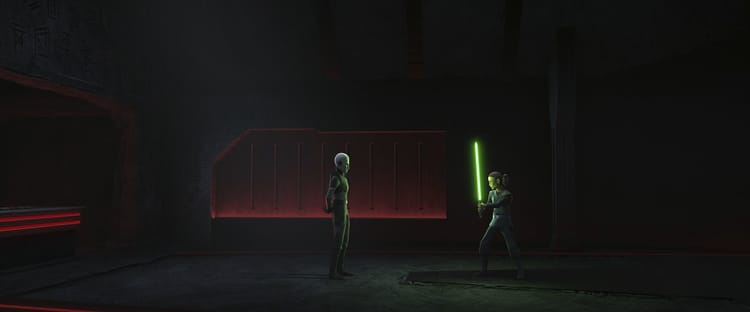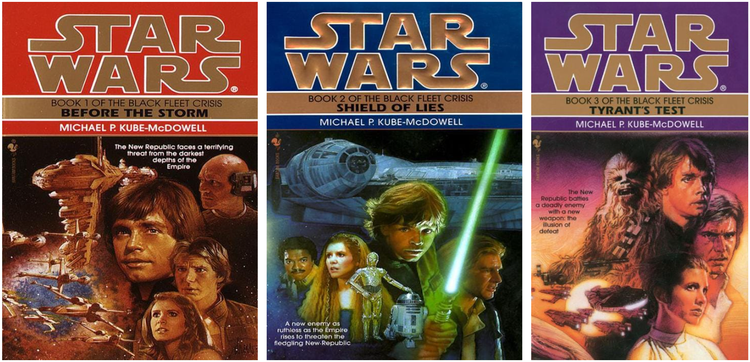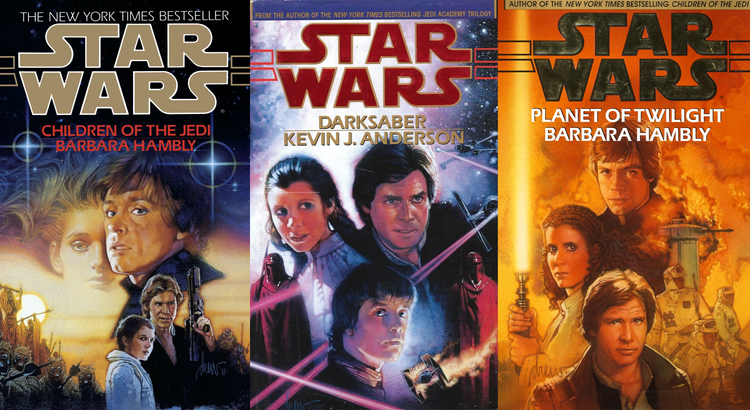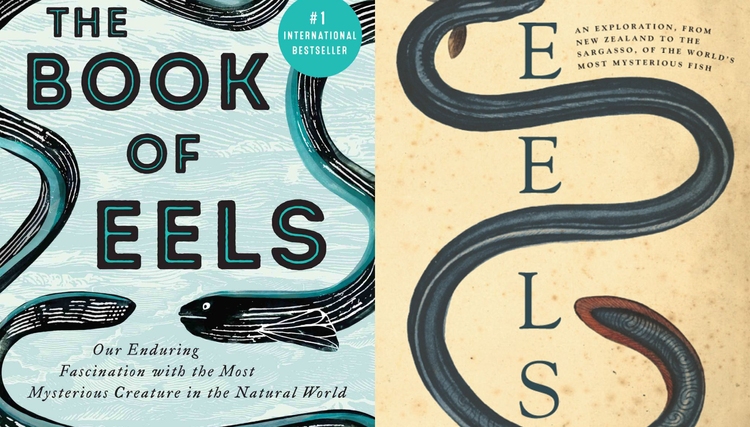
Television Review | The Book of Boba Fett (Season 1)
Producers: LucasFilm
Aired: 12/29/2021 - 2/9/2022
Episodes: 7
MPAA Rating: TV-14
EE Critic Score: 7/10
The Book of Boba Fett is the latest streaming series set in the world of Star Wars. It focuses on fan-favorite character Boba Fett, telling the story of how he escaped death at Carkoon and gave up a career as the Galaxy's most feared bounty hunter to seek a more meaningful life. The show was co-produced by Star Wars TV veteran Dave Filoni, Mandalorian showrunner Jon Favreau, and action director Robert Rodriguez, who directed the episode of The Mandalorian re-introducing Boba Fett post-Sarlaac. In total, there are seven episodes, each somewhere between half an hour and an hour in length.

Analysis
It's hard to talk about this show without comparing and contrasting the Boba Fett of Canon with that of Legends. Both versions of the character escaped the Sarlaac Pit and retired from bounty hunting to take a leadership role. In Legends, Boba Fett became the leader of the Mandalorians, bringing his people through the horrors of the Yuzzhan Vong War and into a stronger position than they had held for generations. The Canon Fett holds fewer ties to Mandalore, and, in any case, the rule of Mandalore at this time is a question concerning Din Djarin. In Legends, Boba Fett was the Mandalorian, the main Mando'ad character in the Imperial and post-Imperial eras. In Canon, that's no longer the case. The people behind The Book of Boba Fett have thus chosen to highlight the differences between Fett and Djarin. Where Djarin is a character built on a stron sense of personal identity that he struggles to maintain, Fett is defined by a rootslessness that he struggles to overcome.
The core of Fett's story in this series is a recognition that bounty hunters lead pretty awful lives. There's a certain romance to being a gun-for-hire (that's why Star Wars features so many bounty hunters in the first place) but, at the end of the day, mercenaries risk their lives and often die for causes they don't believe in, often for no more cause than the glory of their employer. All his life Boba has seen this; his father died after Dooku sent him to face down a hundred Jedi, leaving Boba to find surrogate parentage among other bounty hunters such as Aurra Sing and Cad Bane, people who didn't love him and who left him with nothing in his life but his career as a bounty hunter. Boba himself nearly died defending Jabba the Hutt. For all his fearsome reputation and amassed fortune, no one mourned him when he fell into the Sarlaac Pit.
As he is slowly accepted into the Dune Sea Tusken clan, Boba gets a sense of belonging that he's never really had before, the same sort of sense he got in Legends when he became the Mand'alor and reconnected with his granddaughter later in life. When the Tuskens are killed, he seeks to establish a similar sort of community from the rubble of Jabba's syndicate. In the end, he's accomplished something, but not quite what he wanted to, leaving his arc partially open.
So the story told here about Boba Fett is perhaps not the obvious one to tell, but it's one that treated the character as a character, not as a plot device or as a model for action figures. I could tell that the writers had put some real thought into how to treat Boba Fett as a protagonist. The main problem with the series isn't that the core Boba Fett story wasn't good, it's that the core Boba Fett story wasn't enough to fill seven episodes. The Book of Boba Fett is the television equivalent of taking a nice, interesting bite of food and throwing it on a plate with a pile of french fries and a couple spoonfuls swiped from another dish in the attempt to stretch it to a full meal. It all tastes good (with the exception of one or two soggy fries) but it doesn't really all go together. No matter how much you enjoyed it, you'd never advise anyone to cook that way. That's where I am with The Book of Boba Fett. It's entertaining, but it just wasn't made right. The two episodes of The Mandalorian that got wedged in ahead of the finale were great, but they barely had anything to do with the rest of the show, before or after. What the show really needed was to be run concurrently with Season 3 of The Mandalorian, with a big crossover finale.
In terms of overall quality of storytelling, The Book of Boba Fett has its ups and downs. The action scenes were sometimes quite good (the train attack, the rancor vs. the annihilator droids) but more often they were kind of awkward, and slow, and unexciting (Fett & Shand vs. ninjas, the now-infamous speeder chase). Honestly, action in Star Wars generally has been hit-and-miss in recent years, which, for an action-heavy franchise, is becoming a problem. The music is by Ludwig Göransson, who also composed for The Mandalorian. The score of this show sounded largely like that show’s score. The main theme was fine, though I liked the theme for The Mandalorian better.

Recommendation & Rating
The Book of Boba Fett is similar to, if not quite as good as, The Mandalorian. Fans of that show should also like this one. Star Wars fans with more of an interest in Jedi and the Force should at least watch the sixth episode. The show was good, not great, but still good. 7/10






Member Commentary